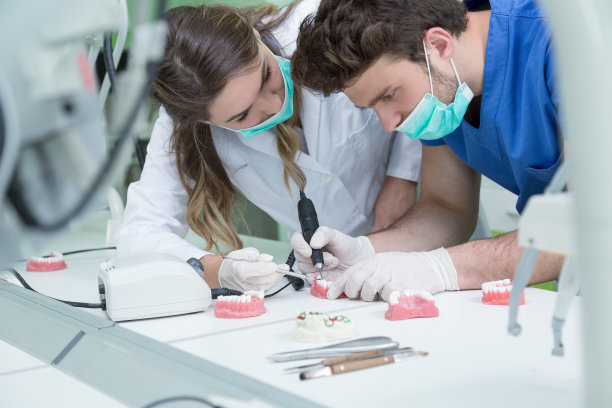Summary: Dental fillings are essential for maintaining optimal oral health, but proper precautions before and after the procedure can significantly enhance the results and lifespan of the fillings. This article outlines crucial measures to take, including consulting with your dentist, preparing adequately for the appointment, adhering to post-care guidelines, and understanding potential signs of complications. By following these recommendations, individuals can ensure that their dental fillings not only provide immediate relief from discomfort but also promote long-term dental health and minimize the need for future interventions.
1. Consult Your Dentist Thoroughly

Before undergoing any dental procedure, its vital to have an in-depth consultation with your dentist. Understanding the specific type of filling recommended for your condition can prevent future complications. Discuss the materials available—amalgam, composite resin, glass ionomer, or porcelain—and their respective advantages and drawbacks.
Moreover, inquire about the procedure itself. Knowing what to expect can help ease anxiety and allow for better mental preparation. You might also ask about any concerns related to your dental history, such as allergies or pre-existing conditions that could affect the filling process.
Lastly, ensure that your dentist is well-informed about any medications or supplements you are taking, as this information can play a crucial role in preventing adverse outcomes and ensuring safe treatment.
2. Prepare Adequately for Your Appointment
Preparation is key to a successful dental filling procedure. First, ensure you arrange for transportation to and from your appointment, especially if sedation is involved. Having a trusted friend or family member to help can alleviate stress and improve your comfort level.
Also, consider your diet prior to the appointment. Avoid heavy meals, as this can lead to discomfort during the procedure. A light meal is recommended to maintain your energy levels without causing nausea from lying back for an extended period.
Furthermore, its crucial to maintain good oral hygiene leading up to your appointment. Brush and floss thoroughly the night before, ensuring your mouth is clean, which can help minimize infection risk during the procedure.
3. Follow Post-Care Instructions Strictly
After getting dental fillings, adhering to your dentists post-care instructions is essential for optimal results. Having a numb mouth after the procedure can lead to accidental bites on the tongue or cheek, so avoid eating until the anesthesia has worn off completely.
Additionally, it’s wise to avoid certain foods for at least 24 hours. Steer clear of hard, sticky, or chewy foods, which could dislodge or damage the new filling. Instead, choose softer food options such as yogurt or mashed potatoes to ease discomfort.
Regularly scheduled follow-ups with your dentist are also integral to maintaining the integrity of your fillings. These visits allow for timely assessments and can ensure the fillings are worn correctly, thereby prolonging their lifespan.
4. Recognize Signs of Complications Early
Finally, being aware of potential complications can facilitate quicker reactions to any issues with your dental fillings. For instance, if you experience persistent pain, sensitivity, or any unusual symptoms like swelling, it could indicate that the filling is failing or there is an infection.
Moreover, immediately report any significant changes in the filled tooth, such as discoloration or sensitivity to hot or cold stimuli. Identifying these signs early can not only prevent further damage but also minimize the need for more extensive treatments later.
Educating yourself on the expected outcomes of your fillings and the warning signs of complications will empower you to maintain your dental health and avoid unnecessary stress.
Summary:
In conclusion, taking necessary precautions before and after dental fillings can significantly impact their effectiveness and longevity. Consulting with your dentist, preparing adequately, following post-care instructions, and recognizing complications are vital steps that every patient should prioritize. These practices will lead to improved oral health and provide peace of mind, ensuring that dental fillings achieve their intended purpose.
This article is compiled by Vickong Dental and the content is for reference only.
Vickong Dental
Vickong Dental is a large medical group established in Hong Kong in 2008 by professors from well-known medical universities in Guangdong and Hong Kong, as well as medical doctors from key national '985' universities (including Master's supervisors and senior professors). The chain of branches brings together expert dentists with PhDs and Master's degrees from Hong Kong and Mainland China, committed to providing high-quality dental treatment.
"Vickong Dental Practices the University Motto of 'Healing and Serving Society,' with a Stable Operation for Sixteen Years. It Has Been honored with Hong Kong Enterprise Leaders's Choice,' and is a Global Trusted Implant Center for the Nobel Implant System. Recommended by Hong Kong Metro Broadcast and Guangdong Television, it Serves Customers from Over Thirty Countries and Regions, Gaining the Trust and Favor of Citizens from the Guangdong-Hong Kong-Macau Greater Bay Area and Surrounding Cities.

Thousands of customers' unanimous praise
The most recognized and highly recommended dental service by customers in the Guangdong-Hong Kong-Macau Greater Bay Area
We Ensure You Receive Detailed Care and Attention Here
Hong Kong standards, Shenzhen prices, Your Trusted English-speaking dentists

Vickong Dental Medical-Grade Instrument Disinfection Process
Vickong Dental Medical-Grade Instrument Disinfection Process

Vickong Dental Chain: A Warm and Comfortable Environment for Treatment






Appointment Hours

Q&A
Why choose Vickong Dental?
Vickong Dental practices the university motto 「Medicine to Benefit Society」, with each branch bringing together highly qualified dentists with doctoral and master’s degrees from Hong Kong and the Mainland, and has maintained seventeen years of steady operation。Recipient of 「2024 Hong Kong Enterprise Leaders Brand」, 「2025 Hong Kong Enterprise Leaders Brand」, a Nobel Biocare Global Trusted Implant Center, and a brand recommended by Metro Radio Hong Kong and Guangdong TV。
To date, we have served customers from more than thirty countries and regions,earning exceptionally high word-of-mouth recognition and trusted recommendations from residents across the Guangdong-Hong Kong-Macao Greater Bay Area and surrounding cities
We have eight major branches in Zhuhai、Shenzhen,and a consultation and service assurance center in Hong Kong,so you can book a free consultation at any time for any questions,which is very reassuring.
If I do not accept the quotation after the CT scan, will I be charged??
No! As long as the actual treatment has not started, you will not be charged any fees.
Will there be any additional charges during the treatment process?
No, there won’t be any additional charges. Before treatment begins, we will clearly explain the treatment plan and its corresponding fees. Only after the patient agrees and signs the consent form will we proceed with the dental service.
Can I pay in Hong Kong dollars?
Yes. Vickong Dental accepts payment in Hong Kong dollars. The amount will be converted based on the exchange rate of the day, and the applicable rate will be clearly communicated to you in advance.
Can I reschedule my appointment at any time?
Yes. Please contact us via **WeChat** or **WhatsApp** as early as possible, providing your original appointment time and details, along with your preferred new date and time slot for rescheduling.













